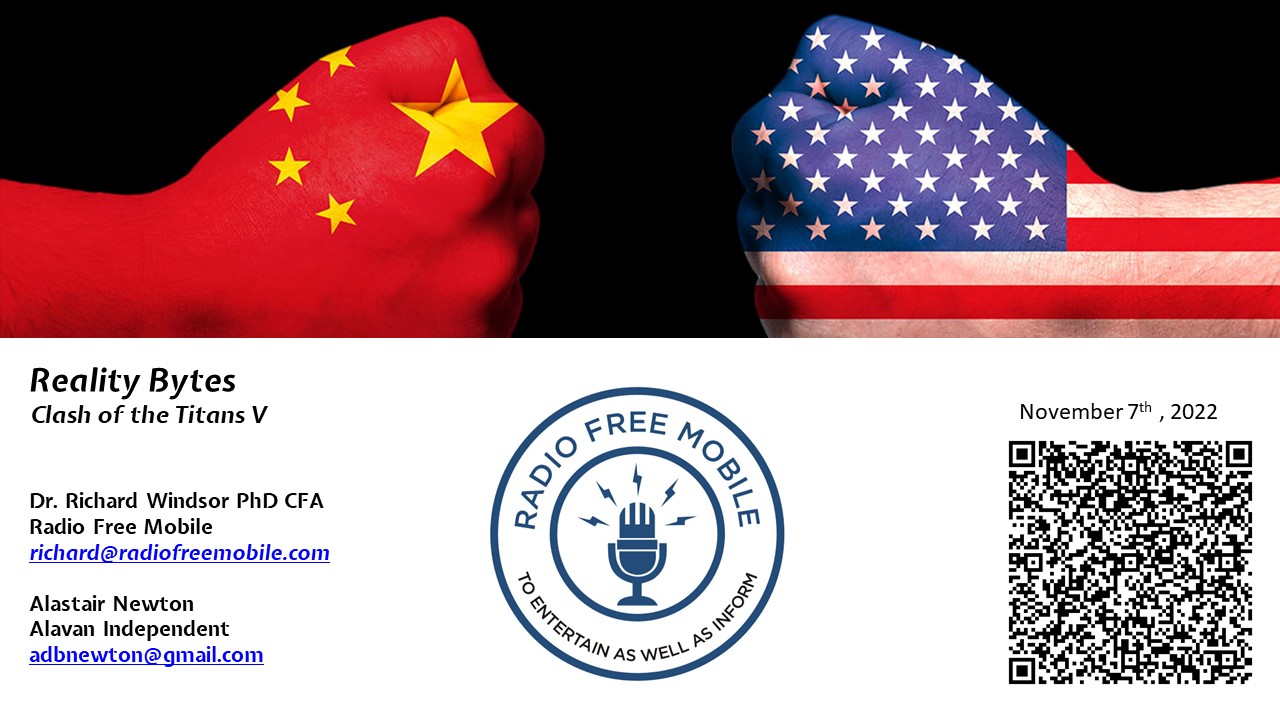7th November 2022: Radio Free Mobile and Alavan Independent update their coverage of the geopolitical and technological rivalry between the USA and China with the publication of Clash of the Titans Vol. V.
RFM Subscribers will receive their copy by email or secure download shortly after publication.
The China/USA rivalry waxes yet more fierce. The combination of the 20th CCP Congress and additional export controls underlines again that semiconductors are central to this struggle. We think the USA intends to do to China what it did to Huawei and that China’s ability to mitigate the impact is limited. Hence, China is likely to focus on lagging-edge technologies and set its own standards wherever it can. The result will be fragmentation and lower long-term growth for all.
- Party over progress: The 20th Congress of the CCP saw the Standing Committee filled with Xi loyalists as opposed to leaders chosen for their competence. This cements President Xi’s grip on the party and could mean doubling down on big policy blunders like Covid Zero.
- 3 watershed moments: This, combined with the USA’s increased restrictions on semiconductors, and its widening attacks on all of the Chinese technology industry represent three watershed moments that will impact the rivalry for years to come.
- Taiwan: These watershed moments increase the risk of a Chinese invasion of Taiwan where we believe that the early 2025 timeline may prove to be all too prescient.
- New front opens: We think that the new restrictions announced on 7th October 2022 represent a substantial increase in aggression. The USA now seems to be intending to hobble the development of China’s technology industry, especially where it competes head-to-head with the USA like AI. We also see economic development as a whole being targeted.
- Additional Export Controls are effectively a blockade on modern semiconductors below 18nm in size. This will ensure China remains 10 or more years behind the leading edge. Furthermore, they will limit China’s ability to make chips, buy chips as well as access the talent of US persons.
- China’s limited options, the three Rs: Recreate the semiconductor ecosystem, reverse engineer or copy it or restrict the export of vital materials to force a relaxation of the restrictions are China’s main options for retaliation. They are unlikely to be successful.
- The lagging reality. The failure of retaliation is likely to mean that China will remain restricted to the lagging edge where there is still plenty of business to be done especially at 28nm. Hence it is here where we expect China to shift its investment despite this meaning that it will fall further and further behind the USA and the rest of the world.
- Build the wall 2.0. The Balkanisation of the internet looks more certain than ever. The new restrictions will only make China push harder for self-reliance, meaning that it will create its own standards wherever it can. The splitting of the global network into two pieces inevitably means less growth for all of the technology sector in the long term.









Autonomous Autos – Hard Ec ...
31 March 2025